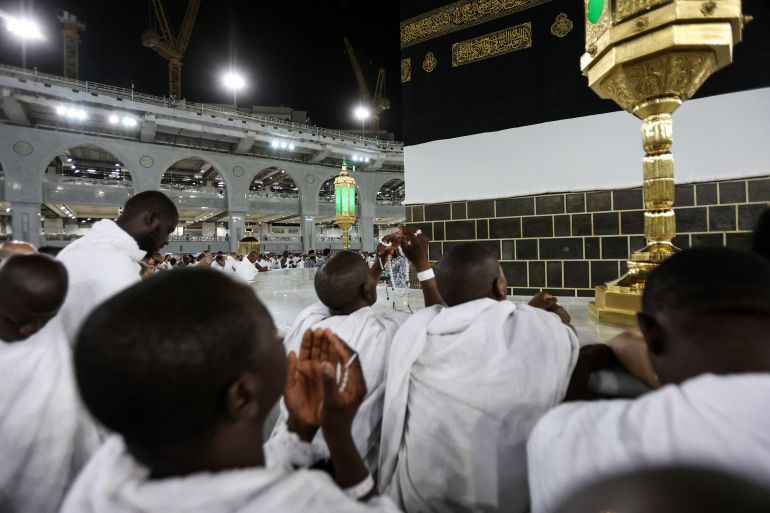How did this year’s pilgrims get chosen for Hajj?
27, 6, 2023
241

Prospective pilgrims aren’t guaranteed a spot for Hajj – this year many were selected on a ‘priority basis’, leaving behind a widely criticised lottery system.
Saudi Arabia’s Ministry of Hajj and Umrah decided to abandon its infamous lottery system for Hajj pilgrims this year.
After much criticism over the lottery system – which chose applicants arbitrarily – pilgrims from Europe, Australia and the Americas have been chosen “based on priority” for the 2023 Hajj season, according to Nusuk.
KEEP READING
Photos: One million Muslims start Hajj pilgrimage in Mecca
One million set to perform Hajj as COVID-19 restrictions ease
Nusuk, a new platform launched by the ministry earlier this year, acts as a one-stop shop with the “aim of facilitating a smooth and comfortable Hajj journey”, for applicants from 57 countries, the website reads.
How does Nusuk work?
Applicants are invited to apply through the platform and are later offered various packages and payment options. Many were urged to apply as soon as registration opened and were selected on a first-come-first-served basis until the quota for each country was reached.
Only Muslims over the age of 12 are permitted to perform the annual Hajj in Mecca and its surrounds this year, with a cut-off age of 65. However, some people older than 65 have been invited to join from inside the kingdom.
Among the requirements are “mandatory immunisations”, the website says. These include flu shots as well as completed COVID-19 vaccines approved in Saudi Arabia.
What was wrong with the old system?
Many complained about the lottery system Saudi Arabia put in place during the pandemic, ostensibly to curb fake tour organisers in Western countries, saying it was unfair.
Applicants had to sign up on the government-backed Mowatif site to be entered into a draw for spots in the Hajj.
Some had planned to travel with their elderly parents, or with their spouse – but the lottery system did not take these factors into consideration, last year’s applicants said.
Others had already paid for packages with travel agencies before the lottery system was announced, just two months before Hajj was due to begin, and struggled to get their money back.
The random selection process also put a strain on the operations and logistics, with the website reportedly crashing, overwhelmed by the number of applications and visitors.
Applicants who were chosen and attempted to pay for packages reported payments being blocked or reversed, leaving them with an unconfirmed application status.
The effects of the lottery system extended to travel agents too. It sidelined tour agencies that have been organising Hajj trips for years, forcing many to lose out on essential revenue.
Did Mowatif only apply in the West?
In other Muslim-majority countries, the Saudi government usually allocates quotas.
In these non-Western countries, government-supervised Hajj missions are available to Muslims, as well as private Hajj tours via authorised travel agencies.
Like every year, quotas will be divided based on the number of Muslims in each country.
Those residing in the kingdom have been invited to directly register with the government.
Hajj is one of the largest Muslim gatherings and is among the five pillars of Islam. All Muslims who are financially and physically able must attempt to complete the Hajj at least once in their lifetime.
How many Muslims perform the Hajj every year?
In the past three years, the number of pilgrims was slashed due to the coronavirus pandemic.
In the year 2020, only 1,000 local pilgrims were allowed to perform Hajj. In 2021, the number rose to 60,000 pilgrims and to one million last year – in large contrast to 2019 when 2.5 million pilgrims performed Hajj.
This year, officials say the number of pilgrims is expected to reflect pre-pandemic figures.
Hajj rituals are expected to commence on June 26 and continue until June 30, according to the lunar-based Islamic calendar. But travellers usually arrive a few days earlier and stay for a few days afterwards during Eid al-Adha.
Visits to the holiest sites of Islam in Mecca and Medina for Hajj, and the year-round Umrah pilgrimage, previously earned Saudi Arabia about $12bn a year, according to official data.
Powered by Froala Editor

